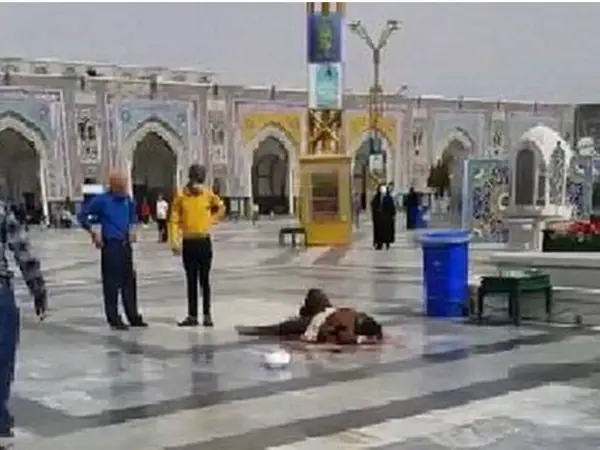Iranian President Ebrahim Raisi has alleged that Sunni 'Takfiris' were behind the stabbing of three clerics in the holy city of Mashhad on Tuesday.
"This sad incident which was perpetrated by one of the deviant agents of American [-made] Takfiri groups will cause evermore unity and solidarity of those who love Islam and the Islamic Iran and will tarnish deviant groups," Raisi said in a statement Wednesday.
Iranian officials use Takfiri as a vague umbrella term to refer to Sunni dissident groups and individuals in Iran and abroad, alleging that they are organized by western powers and Wahhabis.
A man who officials said Tuesday was a "foreign national" stabbed three clerics in the north-eastern city of Mashhad in Khorasan-e Razavi Province. One of the victims has died and two others who were seriously wounded have been hospitalized.
On Wednesday, Tasnim news agency close to the Revolutionary Guard said the suspect is Abdullatif Moradi, an Afghan of Uzbek ethnicity who entered Iran illegally through Pakistan one year ago. The report also confirmed that six other suspects are under arrest for collaborating with the suspect. Two of the detainees are Moradi’s brothers, Tasnim said and added that they were Takfiri extremists who believed the blood of Shiites must be spilled.
Raisi tasked the intelligence ministry with investigating the rare incident which happened on the third day of the holy month of Ramadan in the courtyard of the shrine of Imam Reza, the eighth imam of Shiites, despite the usual heavy security measures in the compound. Such measures would normally prevent anyone smuggling a knife into the massive shrine complex.
Parliament Speaker Mohammad-Bagher Ghalibaf in parliament on Wednesday condemned the attack and indirectly confirmed that the assailant was of Afghan nationality.
"This incident should not destroy friendship and brotherhood between nations," he said, adding that many Afghans, presumably Afghan Shiites, had fought alongside Iranians during the Iran-Iraq War (1980-1988) and in Syria in the past 10 years.
Mashhad has a very large Afghan community most of whom are Sunnis. Afghans mostly live in poverty-stricken neighborhoods of the city including where the assailant reportedly lived and the three clerics engaged in Shiite religious activities, the deputy of the Islamic Propaganda Organization said.
Millions of Afghans have lived in Iran as refugees or economic migrants for many years and their numbers have been increasing considerably since the Taliban takeover of the government in Kabul last year. Officials say as many as 5,000 Afghans enter Iran on a daily basis through official borders now while a large number also enter illegally whose numbers are not known.
The Imam Reza Shrine assailant's motive for the attack is not clear. Immediately after the incident some social media users said they suspected a connection with the Saturday shooting of two Sunni clerics in front of aSunni seminary mosque in Gonbad Kavus. The two incidents could have been meant to cause strife between Shiites and the minority Sunnis in the country, they said.
The majority of people in Gonbad Kavus, the second-largest city of the northern province of Golestan, are Sunni Turkmens.
Deputy governor of Golestan Province, Mehdi Dehrouyeh, on Monday said a suspect was being interrogated in connection with the gun attack on Sunni clerics, adding that it was highly likely that there were "personal reasons" for it.
The ultra-hardliner Kayhan newspaper on Wednesday said the incidents in Gonbad Kavus and Mashhad could be part of a "plot" to cause Shiite-Sunni sectarianism.
"It appears that the incident in Mashhad yesterday was part of a security puzzle designed by conspirators to create a national security crisis and sedition through causing a division between the Iranian nation and foreign nationals and discord between Shiites and Sunnis," Kayhan wrote.
Iranian officials often refer to Afghan refugees and economic migrants living in Iran as "foreign nationals".
